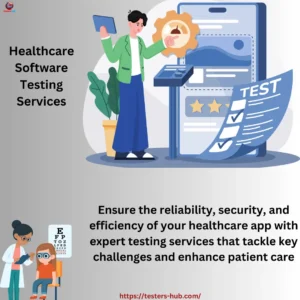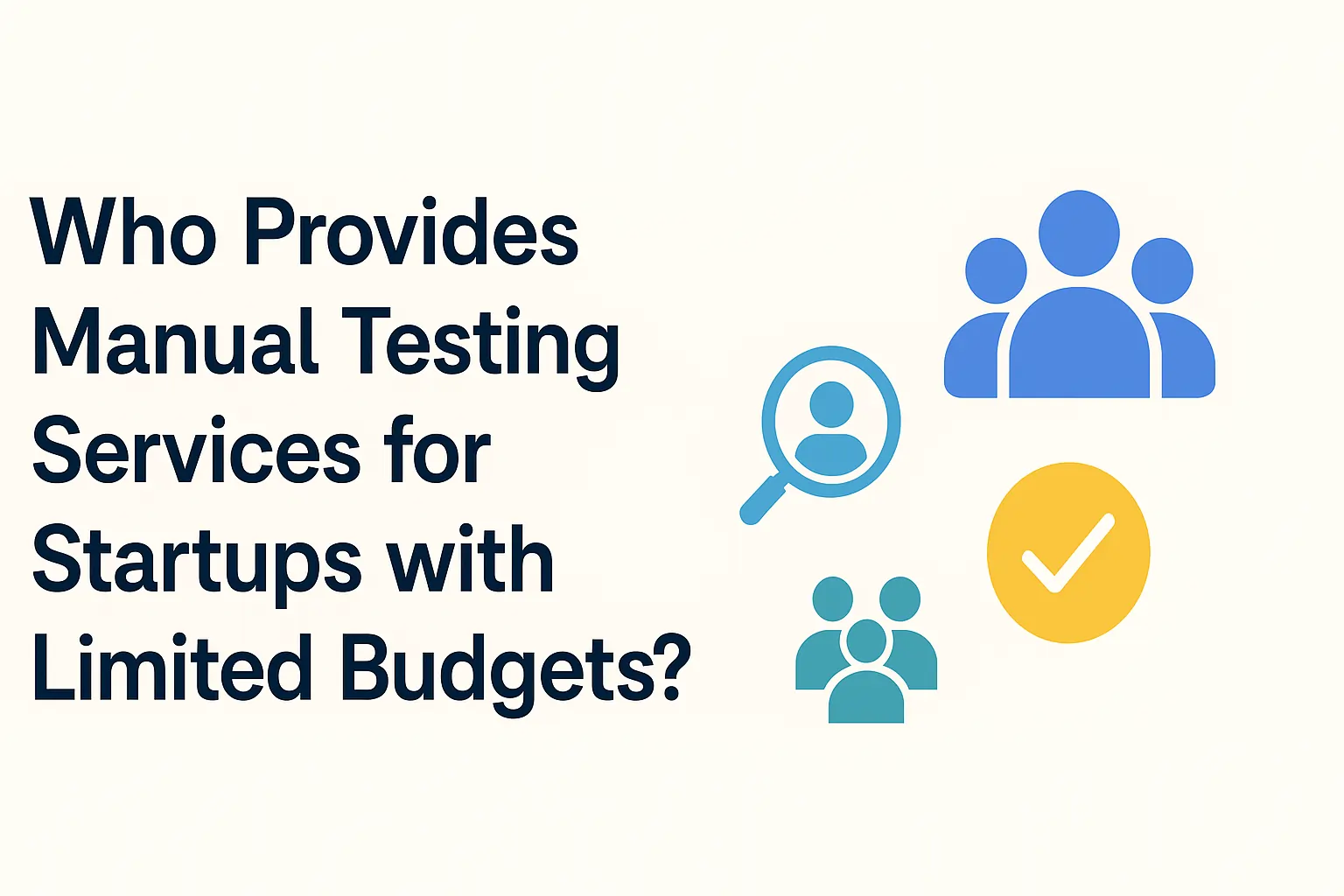Top Benefits of Partnering with Healthcare Software Testing Services for Your Digital Solutions
Introduction
Healthcare Software testing services have become essential in modern medical practices, enabling seamless interactions between patients and providers while facilitating access to critical health data. However, developing healthcare software is challenging due to the sensitive nature of the data and the complexity of the functionalities required. Any flaw in these applications can lead to serious consequences, such as data breaches, misdiagnoses, or incorrect treatments.
This blog highlights the most common issues in healthcare applications and how healthcare software testing services ensure their reliability, security, and efficiency. By leveraging healthcare software QA, testing automation, and AI-driven healthcare testing services, organizations can address these challenges effectively.
1. Data Privacy and Securit
Healthcare apps handle highly sensitive patient information, including medical histories, prescriptions, and billing details. Weak authentication mechanisms, insecure APIs, and poor data encryption can lead to data breaches and non-compliance with privacy regulations like HIPAA (Health Insurance Portability and Accountability Act) and GDPR (General Data Protection Regulation).
Healthcare software testing services focus on security testing with strategies like penetration testing, encryption validation, and compliance audits to prevent vulnerabilities and ensure adherence to data protection standards.
2. Data Synchronization Across Systems
Healthcare applications often need to synchronize data between multiple devices, servers, and third-party systems, such as EHRs (Electronic Health Records) and connected medical devices. Delays or inconsistencies in synchronization can result in outdated or incomplete patient records.
Integration testing ensures data flows seamlessly between systems, using real-time data comparison, robust API validation, and error-handling mechanisms to address synchronization challenges.
3. Accuracy in Health Metrics
Healthcare apps frequently calculate critical health metrics like BMI, blood glucose levels, calorie intake, or medication doses. Inaccurate calculations can lead to incorrect diagnoses or treatments.
Fitness app testing and healthcare software QA employ algorithm validation, unit testing, and extensive scenario testing to ensure all calculations align with established medical standards.
4. Performance Under High Usage
During peak times, such as appointment booking surges or medical emergencies, healthcare apps may experience slowdowns or crashes. These performance issues can disrupt patient care and service delivery.
Performance testing using healthcare software testing automation tools simulates high-traffic scenarios to evaluate app behavior. Load and stress testing, combined with response time monitoring, ensures the app remains reliable under pressure.
5. Device and Platform Compatibility
Healthcare apps need to function seamlessly across various devices, operating systems, and screen sizes. Incompatibility can lead to functional issues and poor user experiences.
Cross-platform testing includes testing on emulators, simulators, and real devices to ensure compatibility. Browser testing and responsive design validation further enhance the app’s performance on diverse platforms.
6. Integration with Wearable Devices
Wearable devices, such as fitness bands and smartwatches, are widely used to track health data. Inaccurate or delayed data transfer between wearables and healthcare apps can compromise user trust and care quality.
End-to-end integration testing ensures accurate real-time data transfer, API reliability, and seamless communication between devices and apps. Extended testing evaluates battery usage and connectivity to ensure consistent performance.
7. Appointment and Notification Systems
Healthcare apps often struggle with managing appointments and notifications effectively. Issues like missed reminders, double bookings, or system failures can disrupt healthcare delivery.
Notification workflows are validated through scenario-based testing to ensure accurate scheduling and timely reminders. Special attention is given to timezone handling and error recovery mechanisms to improve reliability.
8. Accessibility and User Experience
Healthcare apps cater to a diverse user base, including elderly and disabled individuals. Poorly designed interfaces or inaccessible features can alienate these users and violate accessibility guidelines.
Usability testing ensures apps are intuitive and user-friendly for all demographics. Compliance with accessibility standards like WCAG (Web Content Accessibility Guidelines) is verified through screen reader compatibility tests, font size adjustments, and contrast optimization.
9. Prescription and Medication Management
Errors in medication management, such as incorrect dosages or missing prescription details, can pose significant risks to patient safety.
End-to-end prescription testing validates workflows and ensures they align with clinical guidelines. AI-driven automated healthcare testing services identify inconsistencies in prescription data and enhance overall accuracy.
10. Offline Functionality
Many healthcare apps require offline functionality for accessing critical information or completing tasks without internet access. Limited offline capabilities can hinder user experiences and patient care.
Offline testing focuses on data caching, synchronization upon reconnection, and effective error handling. These measures ensure users can rely on the app even without an active internet connection.
11. Localization and Multilingual Support
Global healthcare apps often face challenges in accurately localizing content and ensuring cultural sensitivity. Errors in translations or healthcare terminology can confuse users and reduce trust.
Localization testing includes linguistic accuracy verification by native speakers and regional healthcare terminology validation. Compliance with regional regulations and cultural norms ensures the app’s global appeal and usability.

Conclusion
Delivering high-quality, secure, and dependable healthcare applications is crucial in today’s technology-driven healthcare ecosystem. As reliance on digital health solutions grows, addressing challenges such as safeguarding data, ensuring seamless system integration, enhancing accessibility, and optimizing performance is more important than ever.
Leading healthcare software testing providers employ advanced methodologies, including AI-powered automation, to meet the demanding standards of the healthcare industry. Whether focused on testing healthcare or fitness applications, comprehensive QA practices ensure apps are safe, user-friendly, and compliant with necessary regulations.
Partnering with skilled healthcare testing service providers enables organizations to build applications that prioritize security, efficiency, and user satisfaction. These solutions not only align with compliance requirements but also foster patient trust and contribute to the delivery of improved healthcare outcomes globally.










